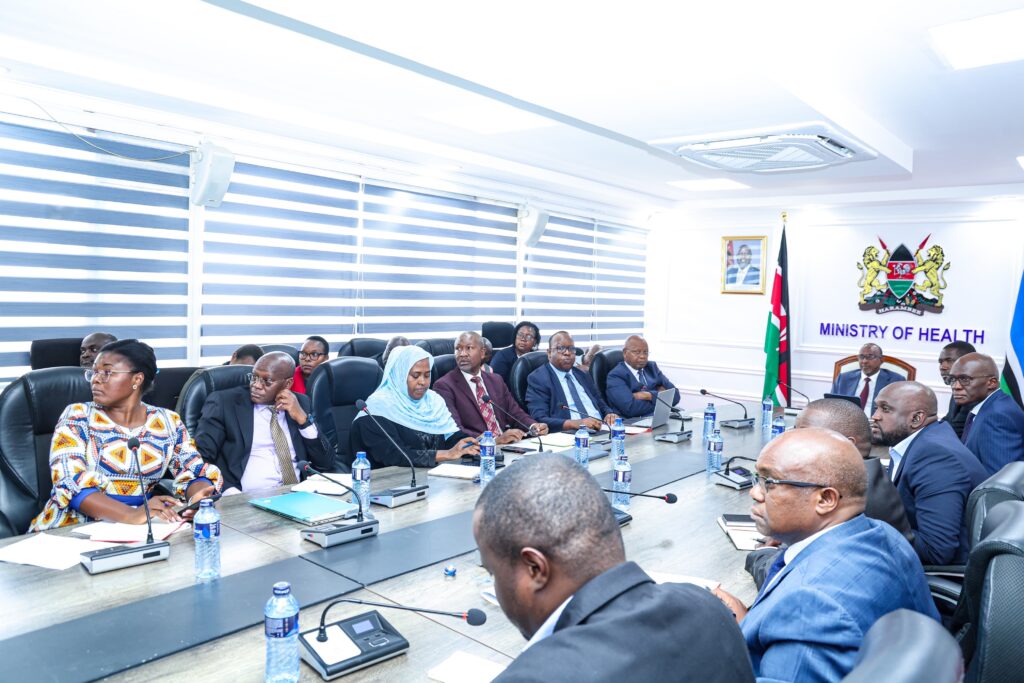Health Cabinet Secretary Aden Duale convened a strategic meeting with Chief Executive Officers of Kenya’s National Teaching and Referral Hospitals to accelerate health system reforms focused on improving service delivery, efficiency, and patient dignity. The meeting, held at Afya House in Nairobi, centered on strengthening coordination at the referral level and enhancing public health responsiveness.
A key directive from the session was the enforcement of the Social Health Authority (SHA)’s bed capacity access rule. All referral hospitals are required to update their actual bed capacities in the Kenya Medical Practitioners and Dentists Council (KMPDC) registry to prevent service disruptions. The Cabinet Secretary also gave a firm order to eliminate overcrowding in hospitals, including the inhumane practice of patients sleeping on floors or sharing beds. He directed immediate procurement of additional beds, pledging government support to ensure all Kenyans receive dignified care.
The Cabinet Secretary also reaffirmed the government’s commitment to reducing patient costs under the SHA. He ordered that no co-payments be charged for services that are fully covered by the authority. Further emphasis was placed on the need for accurate documentation, adherence to approved tariffs, transparency in claims processing, and responsible use of resources to protect patients from unnecessary out-of-pocket expenses and safeguard the financial sustainability of the new national health insurance model.
On the issue of medical supplies, the Cabinet Secretary reassured hospital leaders of ongoing reforms at the Kenya Medical Supplies Agency (KEMSA) to restore full stock availability and secure a stable supply chain, ensuring that essential medicines and equipment are consistently available to support uninterrupted care.
Digitization emerged as a central theme in the reform agenda, with directives issued for the full digital integration of patient records, prescriptions, and facility operations. This move is expected to enhance operational efficiency, reduce fraud, and promote greater accountability across the public health system.
Referral hospitals were also instructed to address patient complaints in a timely manner through KMPDC channels and to declare any new specialized services, such as organ transplants or advanced diagnostics, for regulatory recognition. To strengthen training standards, facilities were advised to formalize academic collaborations through structured memoranda of understanding.
The Cabinet Secretary called on hospital CEOs to uphold ethical governance, prioritize public interest in decision-making, and ensure the effective use of public resources. He highlighted the importance of close collaboration between hospital boards, management, and the Ministry to resolve operational, legal, and funding challenges.
The meeting marked a significant step toward consolidating institutional reforms aimed at enhancing service delivery and laying the foundation for a stronger, more equitable healthcare system.

